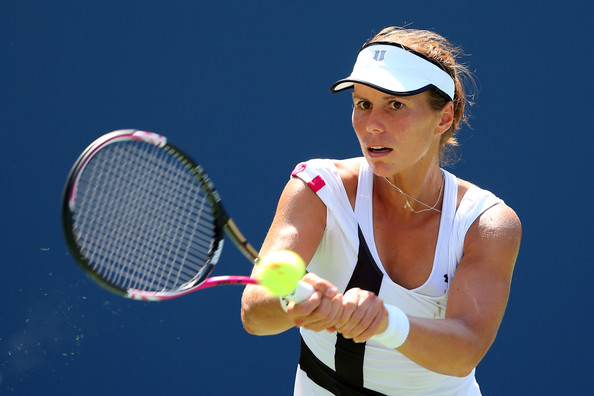Few things bring a country together like competing at a major sporting event. Australia loves its sport. Considered a powerhouse in rugby, cricket, and even the lesser known hockey. Yet we’ve struggled to dominate the World Game, in fact we barely register a blip on the global football radar.
Prior to this World Cup, we were ranked a lowly 62. Our group consisted of the two 2010 World Cup finalists in Spain and Netherlands, and the dark horse of the competition in Chile, themselves ranked 14th in the world.
Nobody gave Australia a chance this year. The most negative supporters were doubtful we’d even manage to score a goal. So much so that many gambling agencies offered money back specials if we did.
In preparation, we booked friendlies against footballing giants Brazil and France. Two 6-0 defeats saw Holger Osieck lose his job as coach just eight months before the World Cup. It wasn’t so much the scorelines that saw Osieck axed, but poor attitude from the players that suggested he had lost the team.
Enter Ange Postecoglou.
Postecoglou plied his trade at South Melbourne. Having won two NSL titles as a player, he went on to lead South Melbourne in a four-year coaching stint which saw the team to back-to-back titles, meaning he is the only person to be involved in all four of South Melbourne’s NSL titles.
He coached the Young Socceroo’s team in 2000 although he was less successful. During his time as coach, he had an infamous on-air argument with Craig Foster on the SBS program The World Game after Postecoglou’s side failed to qualify for the 2007 U-20 World Cup.
It wasn’t until 2009 when Postecoglou finally returned to prominence as he was appointed coach of A-League side Brisbane Roar following the sacking of Frank Farina over a drink-driving charge. Critics were unsure as to how Postecoglou would fare after a number of key players departed the club.
The rebuild proved to be remarkably successful as Postecoglou led Roar to two championships, a premiership and, most impressively, a 36 game unbeaten streak, a record in Australian sport.
With the majority of Australia’s ‘golden generation’ that most famously took us to the knockout stages of the 2006 World Cup, and the remainder being past their prime, Postecoglou was handed the task of introducing a new pool of talent.
Tim Cahill and Mark Bresciano were the most familiar names in the 23-man squad as full-back Luke Wilkshire was dropped from the preliminary 30-man squad. Ivan Franjic and Ryan McGowan took his place while Mark Schwarzer’s retirement marked the beginning of a duel between Mat Ryan and Mitch Langerak for the position of Australia’s number one goalkeeper.
The squad was so unknown to everyone that even Prime Minister Tony Abbott mistakenly wished good luck to captain ‘Mike’ rather than Mile Jedinak before Australia’s first game of the tournament against Chile.
Australia’s campaign began as many cynical types had predicted – conceding two goals in the first fifteen minutes. But unlike the games led by Holger Osieck, or even Pim Verbeek in the 2010 World Cup, Australia refused easy defeat. Instead the young side composed itself and before long Tim Cahill gave us our first goal of the tournament. Postecoglou’s men smelled blood and pushed hard for the equaliser. In the second half, Australia outplayed Chile and were unlucky not to draw level through Mark Bresciano, as an incredible reflex save denied the veteran midfielder. Some may argue the scoreline wasn’t reflective of the game as a late goal sealed a 3-1 win for Chile.
Although inevitably disappointed with the result, genuine belief crept into the side that major upsets could be caused.
Few had expected Holland to replicate the efforts from its 2010 World Cup campaign, but a 5-1 win against Spain had proven the cynics wrong as the onslaught put them in prime position to top the group of death. Despite a positive performance against Chile, Australia was widely expected to be on the other end of yet another Dutch demolition but with their renewed enthusiasm, the Socceroos met its fearsome opposition with the spirit that truly identifies Australia. Rather than be affronted by the underdog label, Australia rightly relished it.
With a style of play inspired by Spanish giants Barcelona, Postecoglou’s green and gold army took the game head on. Conceding another early goal, the Socceroos refused to put their heads down, equalising instantaneously, and in extraordinary fashion. It was once again Australia’s golden boy Tim Cahill answering the call with what many dubbed the goal of the tournament. A perfect delivery from Ryan McGowan was met in equally brilliant fashion by the Socceroo’s number four as his left-footed volley cannoned into the underside of the crossbar, igniting an entire stadium. The rest of the world watched on in awe as a footballing minnow took it to the European giants who had demolished the reigning world champions just days before.
A second goal came from Mile Jedinak as he converted from the spot and, just like that, the world No. 62 team were beating the 2010 World Cup finalists. Unsatisfied with the lead, the Socceroos continued to push on, looking to extend the margin. Behind Tim Cahill, Matthew Leckie was the most impressive player for Australia in its three games. His definitive moment of glory could have seen Australia lead 3-1 against Holland but for a poorly elevated cross. The ball came in at an awkward height for the winger, who improvised by chesting the ball goalward, but the Dutch goalkeeper collected the ball gratefully.
Australian hearts sank as the ball was run down to the other end immediately after the opportunity had presented and clinical finishing proved to be the decisive factor in the game as Holland drew level. In keeping with the class gap, the Netherlands found the lead just ten minutes later and despite a resilient Australian side imposing themselves on the game, held on for an arguably undeserving win.
Mixed feelings arose after the game in the Australian camp. Fans couldn’t be prouder of the effort their team had shown in both games yet couldn’t help but feel dissatisfied that they had nothing to show for it. After just two games, their fate had become mathematically certain as another loss for Spain meant that both Netherlands and Chile were out of reach. Australia and Spain had been unable to register a point before facing each other to decide who would finish at the bottom of the group.
A 3-0 loss to Spain was justified on the balance of play as the skill level between Australia and the remainder of the competition had never been more apparent. The fighting spirit of the underdog was still present as Postecoglou’s men tried for the more risky passes, but they were left without a reward as the reigning world champions outclassed them to avoid a complete embarrassment of their own.
But Socceroos’ fans needn’t be embarrassed. In a group where Australia was not even expected to score let alone win a game, this World Cup was never about the end result. Football isn’t at a level in this country where we can demand a place in the knockout phase at the drop of a hat.
Although one cannot help but feel a pang of disappointment that history will record a winless World Cup in Brazil, the overwhelming feeling should be pride. Postecoglou’s men honoured their opportunity and delivered a performance that shines a bright light for the future of Australian football.
The real test will be this summer with the Asian Cup coming to Australia – a genuine opportunity for international silverware. Postecoglou will have had time to mould his tactics on a squad that will be bolstered as the likes of Robbie Kruse and Trent Sainsbury, among others, return to full fitness.
More than anything, the Asian Cup will be a chance to give Tim Cahill the send-off he deserves on home soil, as a fourth World Cup will be beyond his reach. Arguably the greatest Socceroo, Cahill personifies the Australian underdog spirit: the ability to rise above against all perceived odds and to keep your head up for the opportunities for greatness when faced with the most challenging of tasks.


![[[MackHorton]]courtesy elitesports](https://lotswife.com.au/wp-content/uploads/2014/09/MackHortoncourtesy-elitesports.jpg)